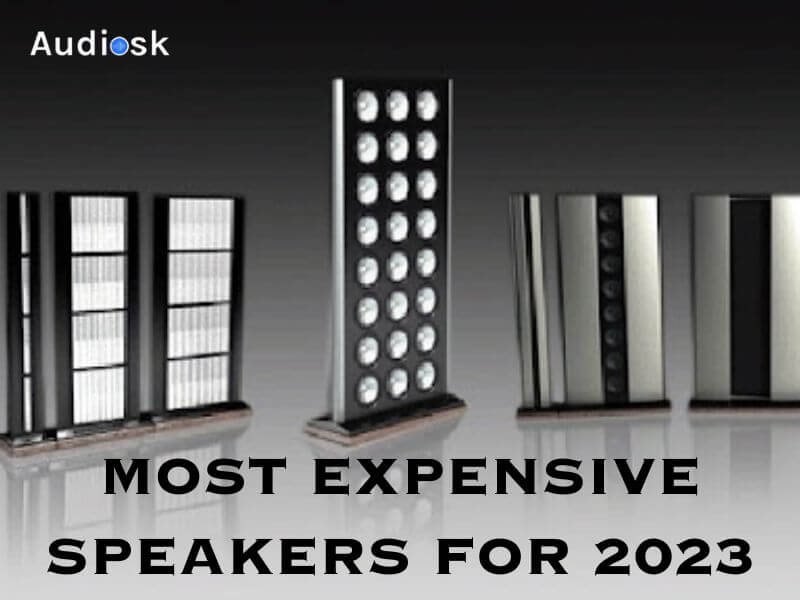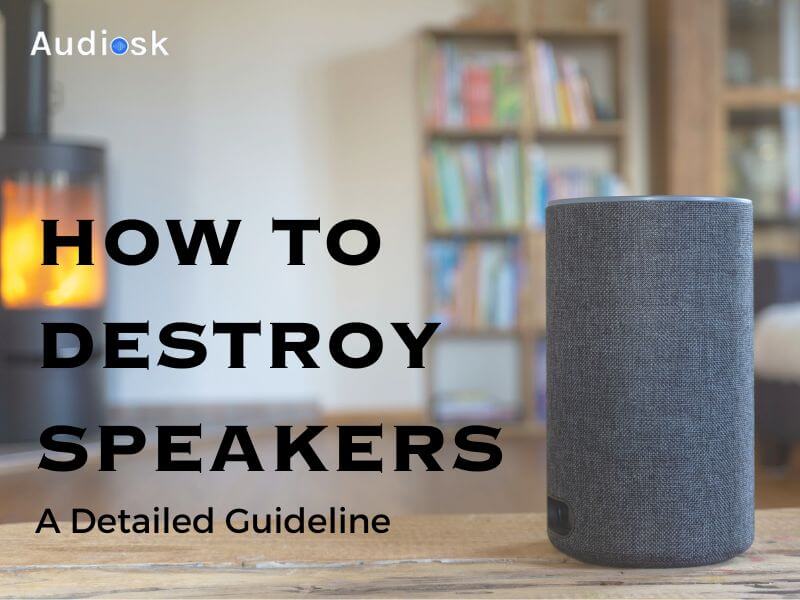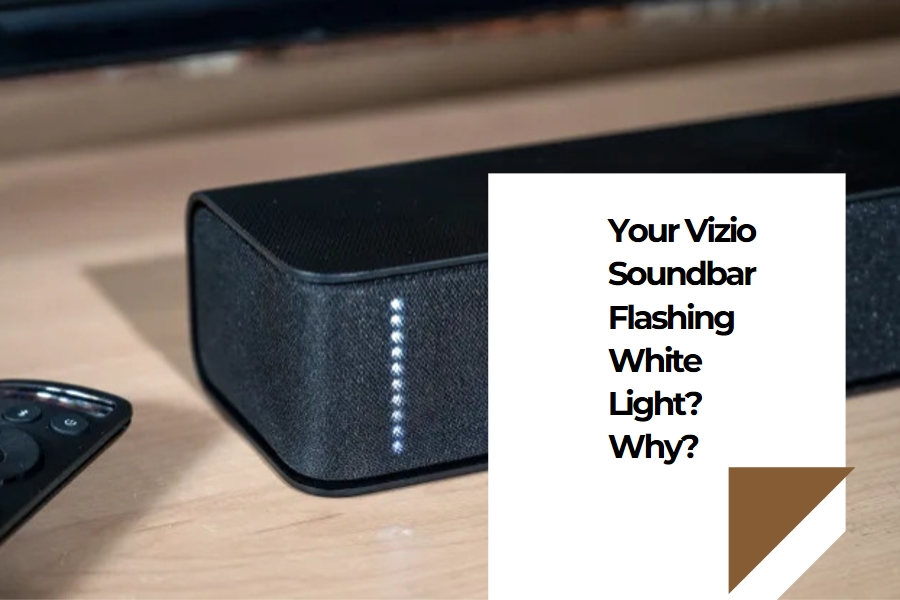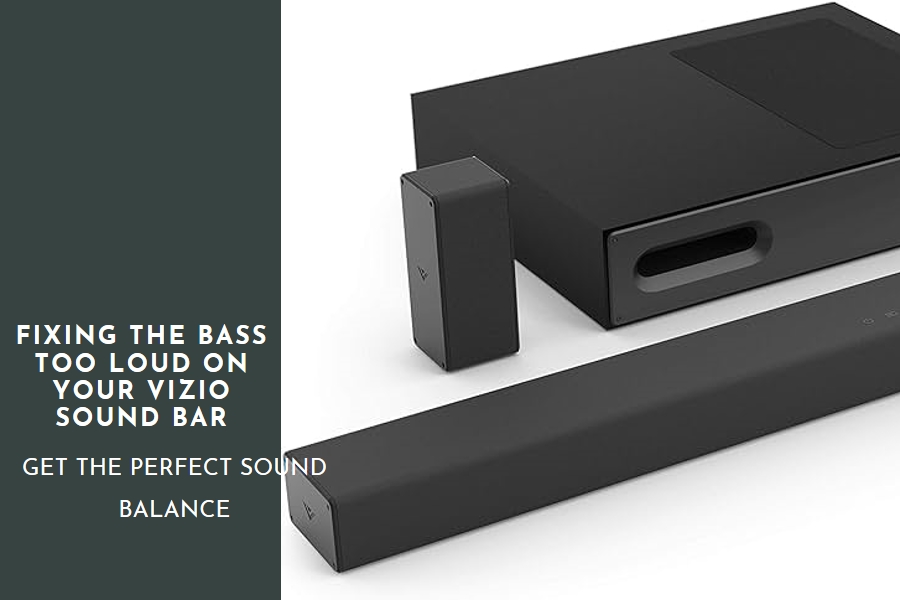Speakers often get rated by how many watts they have. This tells us how strong and loud they can be. So, what happens when a speaker has 1000 watts?
As avid users of high-powered audio equipment, we were fascinated by a 1000-watt speaker. Based on what we have seen, it’s been delicate to understand how loud and important such a speaker is.
In this article at audiosk, we’re sharing our perception on how loud is a 1000 watt speaker ? Beside 10 watts speaker, 30 watts speaker, 800 watts speaker, 80 watts speaker , predicated on our particular experience. We’ll help you understand all about speaker watts.
What Does 1000 Watt Mean In Speakers?
” 1000 watts (W) is the highest power level that our speaker can handle from an amplifier. However, the actual power usage of the speaker varies. It depends on how loud we set the volume. The louder the volume, the more power the speaker uses.”
Let’s learn more specifically below according to our expertise:
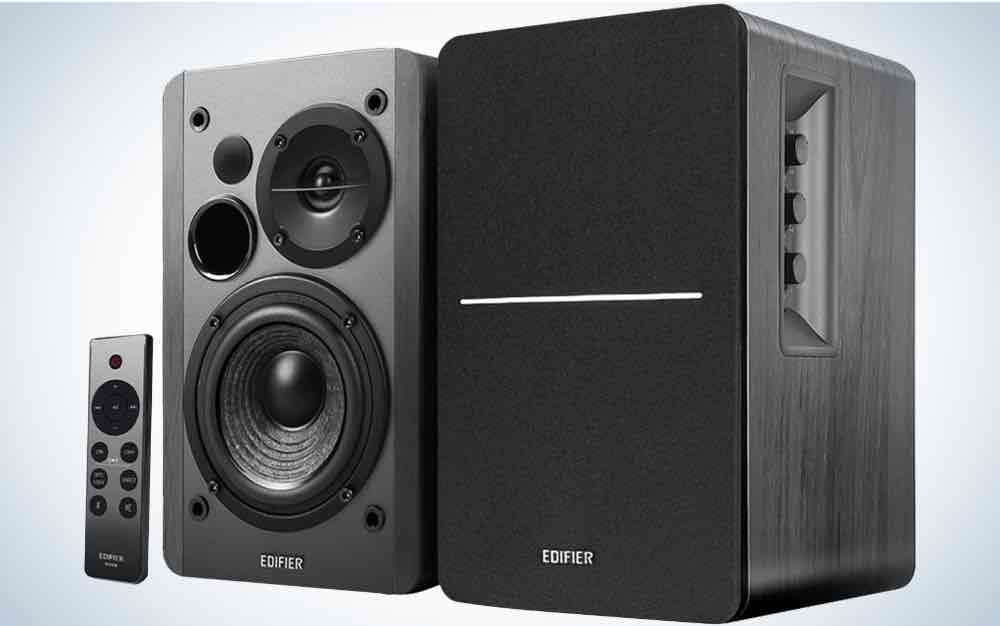
Understanding speaker wattage
There’s a common belief that more watts directly translate to a louder sound. However, this is a misconception that we’d like to clarify.
The wattage in speakers refers to the power handling capacity. It’s a measure of how much energy a speaker can manage from an amplifier without getting damaged.
Beside, there are many ways to connect speakers such as bluetooth, coaxial speaker cable, etc. to increase the speaker’s amplification even more.
The truth behind 1000 watt speakers
When we talk about speakers with a 1000 watt rating, it doesn’t automatically mean they will produce extremely loud sounds. It’s more about the capacity and quality of sound at higher volumes. These speakers are designed to handle more power, allowing them to deliver sound with more clarity and less distortion, even at high volumes.
A 1000 watt speaker might be excessive for a small room but perfect for larger spaces or outdoor settings. It’s all about matching the speaker’s power to your specific needs.
For instance, in a home theater setup, such high wattage can lead to improved sound quality even at lower volumes.
How Loud Is A 1000 Watt Speaker?
We, as sound technology experts, know that a 1000- watt speaker’s loudness is not constant. It changes due to colorful factors. In our field, we use rattle( dB) to measure sound situations. When assaying sound, we consider how the speaker is set up, the room’s impact on sound, and the listener’s distance.
We can use this unit to compare how loud sounds are. A 1000- watt speaker’s loudness does not only depend on its power. The effectiveness with which the speaker converts electrical power into sound is a critical factor. A better speaker will be louder than a worse one, indeed if they have the same wattage.
The placement of the speaker also affects its loudness. In general, a speaker sounds louder in big, open spaces or ample areas compared to small, confined bones. A 1000- watt speaker can generally make sounds around 110- 120 decibels.
It’s worth noting that being exposed to loud noises for a long time can harm your hearing. Therefore, you should try to keep sound situations at a safe volume and be aware of loud surroundings.
How Is Speaker Loudness Measured?
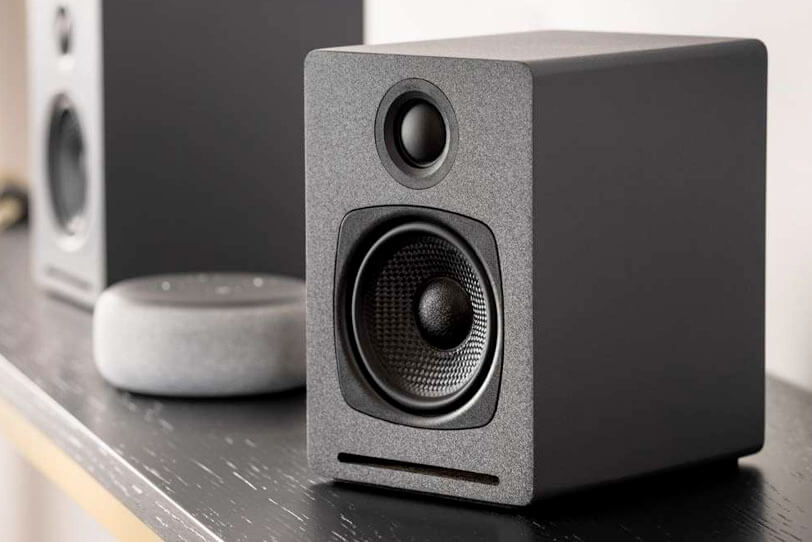
As experts in sound, we stress the need to measure volume in order to understand important speakers. These speakers are rated at 1000 watts.
Decibels: The core metric for loudness
In our professional practice, the decibels ( dB) is the foundational unit for measuring loudness. This unit directly represents the intensity of sound.
When assessing important speakers, like the 1000 watt models, understanding rattle is crucial. It allows us to quantify the factual sound affair these speakers can achieve.
Sound: Pressure position (SPL) a critical measure
One essential aspect we concentrate on is the Sound Pressure position(SPL). SPL, measured in decibels, shows how well a speaker turns electricity into sound we can hear. High- wattage speakers need SPL to measure their sound product effectiveness.
Essential aspects in measuring loudness
- SPL: cadence In our toolkit, an SPL meter is necessary. It directly measures SPL to show how loud a speaker is.
- Measurement Distance: We always measure loudness at a standardized distance from the speaker. This ensures consistency and delicacy in our evaluations.
- Environmental Impact: We also consider the environment where the speaker is used. Room acoustics and other environmental factors significantly impact SPL readings.
What are Factors That Influence A 1000-Watt Speaker’s Loudness?
Several factors influence the loudness of a 1000-watt speaker. Here are the key ones:
Power output:
When assessing speakers, it’s important to know that a 1000- watt speaker can generally be louder than lower- powered ones.
This happens because it can handle further power. When the further energy goes to the speaker, so the sound gets louder.
However, it’s pivotal to remember that a high- power standing does not automatically guarantee loudness. Other factors, like speaker size, response, perceptivity, and impedance, also affect the sound.
Sensitivity
Sensitivity refers to how effectively a speaker converts power into sound. A high- sensitivity speaker can transfigure further power into sound, resulting in a louder affair.
On the other hand, people with lower sensitivity may not convert power as well, so the sound isn’t as loud.
Impedance
The speaker’s impedance is its electrical resistance, measured in Ohms. It affects the power demanded for maximum volume. Low impedance speakers bear lower power to reach maximum loudness compared to high impedance bones .
You can fluently notice the difference between speakers with 6 ohm and 8 ohm conditions.
Environment
We think the loudness can also be affected by the acoustics of the environment where the speaker is placed.
Besides, surfaces in a room can make sound louder or quieter. Hard surfaces reflect sound and make it louder. Soft surfaces absorb sound and make it quieter. The room’s size affects the sound. In larger spaces, sound dissipates more, making it seem quieter.
Speaker size
We observe that larger speakers frequently produce a louder sound than lower bones.
This is because bigger shells move more air, making a louder sound. also, the larger cone size in bigger speakers also contributes to this increased loudness.
Frequency response
The way a speaker reproduces different frequencies affects the volume and quality of the sound. Speakers with a wide range reproduce further frequencies for a better sound experience.
On the other hand, speakers that can not produce all frequencies might not sound as vibrant or loud.
Where Can 1000-Watt Speakers In Watts Be Used?
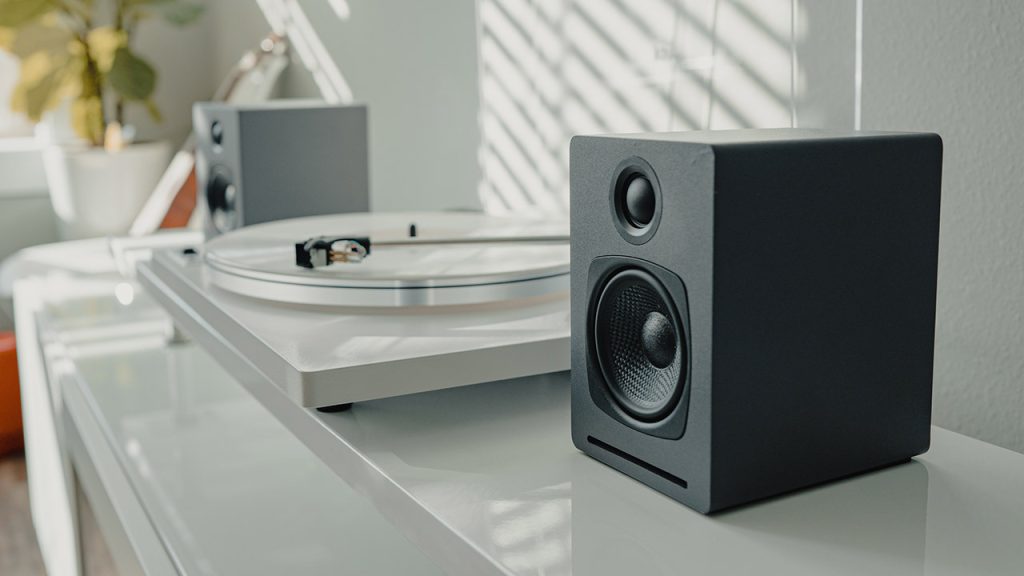
In the realm of high- dedication audio, 1000- watt speakers stand out for their exceptional loudness and demitasse-clear sound quality.
At our audio expert team, we have seen these speakers transform colorful surroundings, from electrifying live musicals to the cozy corners of home theaters. As follows:
Live Events And Musicales
The primary stage for 1000- watt speakers is live events. These bootstrappers are chief for musicales, festivals, and out-of-door events where robust sound protuberance is a must-have.
Our experience with event organizers and audio professionals confirms their preference for these speakers due to their ability to deliver expansive, undistorted sound.
Whether it’s the pulsating measures of a rock musical or the different soundscape of an out-of-door festival, these speakers guarantee that every beat and air reaches the audience with impeccable clarity.
Home Theater Systems
For a cinematic audio experience in the comfort of your home, incorporating 1000- watt speakers into your home theater system is a game- changer.
They offer a rich, dynamic audible experience that breathes life into movies. No matter if you are indulging in the latest megahit or a dateless classic, these speakers elevate your viewing with their important and nuanced sound.
Professional Recording Studios
In the perfection- driven world of professional recording workrooms, the clarity and accuracy of sound are non-negotiable. Then, 1000- watt speakers serve as exceptional monitoring tools.
They give sound reduplication with similar delicacy that it aids directors and musicians in making scrupulous adaptations to their tracks.
This ensures that the music not only sounds phenomenal in the plant but also translates beautifully on other playback systems.
Public Speaking And Presentations
For public speaking and presentations, especially in vast spaces like conference halls and amphitheaters, oral clarity is crucial. 1000- watt speakers are complete at projecting clear, scrutable speech across these large areas.
Their trustability and performance make them an ideal choice for commercial events, educational lectures, and colorful public gatherings.
How To Choose The Right Wattage For Your Needs?
First, you need to understand what speaker wattage is. Wattage tells you how powerful a speaker is. It’s key to remember that more watts don’t always mean the sound is better, but they do mean the speaker can be louder. If you’re looking at 1000-watt speakers, these can make a lot of noise.
We’ve found that 1000-watt speakers are great for those who need strong sound, especially in big rooms or outside.
However, you always think about how big your room is, what you’ll use the speakers for, and other details like sensitivity and impedance before you choose.
The best speakers for you are the ones that meet your sound needs, whether they are big 1000-watt ones or smaller ones. It all depends on your space and what you expect from your sound.
Conclusion
As experts in the field of sound at audiosk, A 1000-watt speaker is characterized by its significant power and volume output, making it an ideal choice for larger venues. These speakers are commonly found in settings such as concert halls, nightclubs, sports arenas, spacious home theater setups, and outdoor events.
However, it’s important to note that these speakers may not be suitable for smaller rooms or home use. Their high volume capability can overwhelm the space and potentially cause damage.


